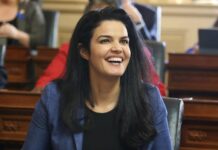The University of Virginia recently announced the continuation of a credit/general credit/no credit option for the January Term and Spring Semester. As the third semester of credit/no credit approaches, Michelle Ball, an Associate Director at the U.Va. Career Center, and Kim Sauerwein, the Director of Career Communities at the U.Va. Career Center, provided insight into the decision-making process.
Ultimately, “the global pandemic is the reason” for the credit/no credit policy, said Ball. One’s reasoning for choosing the option could be “anything from … a family crisis or challenge directly related to COVID…It could also be that you’re taking online classes that weren’t originally designed to be online classes, and that’s really changed the format and what you were expecting,” she said.
However, Ball cautioned, the credit/no credit policy is not for students who are concerned about getting an A versus an A-. Particularly “given the competitive nature of our school,” it is oftentimes easy to lose sight of what grades are viewed as “good,” considering the circumstances.
Yet, “the reality is not all other colleges and universities are doing this for multiple semesters,” Ball said. With the distance from the start of COVID increasing, “it’s just going to be harder for a [graduate] school to evaluate your application,” Ball said. Since the spring will “effectively” be the third semester of credit/no credit, graduate schools want to see “that you can adapt to a situation,” she said.
Additionally, “graduate schools are going to be looking in more detail at your transcript.” Particularly for medical school, for example, “if you’re taking credit/no credit for requirements…it could look a certain way to a school if you also don’t have the other courses to demonstrate” your upper-level knowledge. “They were much more open in the spring [to credit/no credit] …but this fall, they’ve been a little stricter on preferring grades,” Sauerwein said.
Law schools, on balance, however, are “okay” with it. And for MBA programs, which are “so far removed…with years of work in between,” taking courses credit/no credit are not as impactful, as there are “so many other pieces to your application,” Ball said.
For students interested in certain career paths following U.Va., “there’s a lot of employers that don’t get that nitty-gritty into your transcript,” Ball said. Because there is a “wide variance in terms of the industry you’re applying for, the type of job you’re applying for, [or] the size of the company you’re applying for,” grades fluctuate in how they influence a hiring decision.
However, a semester of credit/no credit by no means precludes students from graduate school or career aspirations. Often, there’s space in an application to discuss extenuating circumstances. “A lot of the schools we’ve been talking to have been very understanding and know that we’re in a different situation than normal,” Ball said.
Both Ball and Sauerwein emphasized the importance of taking care of yourself first, while still “keeping in mind the big picture…of being able to demonstrate to someone that you can do the work… which is always a positive thing, not a negative thing,” Ball said. She added, “The bigger context of your goals is something that might be important when thinking about those decisions.”
“If you have a circumstance where things this semester have been challenging for you, for a variety of reasons… and you’re on the cusp of that decision, you can always talk to an advisor, a pre-health advisor, a career counselor, or an academic advisor,” Ball said.
The U.Va. Career Center offers virtual drop-in hours Monday-Friday 12-4 PM and one-on-one appointments with career counselors.
















